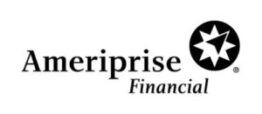
Investors suffering losses in the Oppenheimer Rochester Funds may have claims against their stockbrokers or financial advisors for failure to perform due diligence.
Last year, investors in the Oppenheimer Rochester National Municipal Bond Fund collectively lost in excess of $5 billion as these shares lost more than 60% of their value.
Rochester National Municipals Fund: Suited For High Risk Tolerant Investors
The Oppenheimer Rochester National Municipals Fund was a highly speculative, and a well known “junk bond” fund. According to the Company’s Prospectus and Morningstar, the Oppenheimer Rochester National Municipals Fund was “too bold for the vast majority of investors,” and was only suited for “high risk tolerant investors” who seek a “fat yield and can withstand big fluctuations in net asset value–and even then,” as Morningstar warns “we’d limit this fund to a small position” or a “minor portion of one’s muni portfolio.”
Stockbrokers and investment professionals have a duty, and by law are required to have an adequate and reasonable basis in order to recommend a security. Hanly v. Securities and Exchange Comm’n, 415 F.2d 589, 596-7 (2nd Cir.1969).
While there has been class action lawsuits filed against the Oppenheimer Rochester National Municipals Fund, unknowing investors purchasing the Oppenheimer Rochester National Municipals Fund based upon the recommendation of their stockbroker may be able to recover their losses in direct claims against their brokers in FINRA Arbitration.
Stockbroker Responsibilities
A stockbroker cannot recommend a security unless there is an adequate and reasonable basis for such recommendation. Keenan v. D.H. Blair & Co., Inc., 838 F.Supp. 82, 89 (S.D.N.Y. 1993). These duties have been described as “implicit warranties of the soundness of the stock, in terms of value, earning capacity, and the like.” Kahn v. Securities and Exchange Comm’n, 297 F.2d 112, 115 (2d Cir.1961) (Clark, J., concurring) (failure to disclose information in contravention of the warranty is tantamount to an omission of a material fact).
The duty to perform due diligence prior to making a recommendation is part of the “special duty of fair dealing stockbrokers owe to their clients.” Securities and Exchange Comm’n v. Hasho, 784 F.Supp. 1059, 1107 (S.D.N.Y.1992)(quoting, Hanly v. Securities and Exchange Comm’n, 415 F.2d 589, 596 (2d Cir.1969)( the Second Circuit articulated the duties which inhere in this “special relationship” where a dealer “implicitly represents he has an adequate basis for the opinions he renders.”) .
Since its inception, all seven of Oppenheimer’s “Rochester” Funds are managed using a common “Rochester style management,” which is self-described as a “contrarian” and “yield-driven” style which involves “lower-rated, unrated and generally underappreciated municipal securities.” The “high-risk, high-reward” Rochester style is relatively well known in the investment community. See, e.g. Barrons, May 6, 2002 (“Rochester Fund Municipals’ willingness to take risks explains its relative success well but it’s still not the right fund for everyone”).
Investors Are Cautioned
According to the September 27, 2006 Registration Statement and Prospectus the Rochester Fund filed with the SEC (collectively, the “September 2006 Prospectus”), investors are cautioned that:
- since the Fund may invest in lower rated securities without limit, the Fund’s investments should be considered speculative
- Up to 100% of the securities the Fund buys may be high-yield, lower-grade fixed income securities, commonly called “junk bonds.”
- investors should be willing to assume the greater risks of short-term share price fluctuations that are typical for a fund that invests in those debt securities, which also have special credit risks.
- since the Fund’s income level will fluctuate, it is not designed for investors needing an assured level of current income.
The Fund’s Prospectus
As set forth in the Prospectus, and elsewhere, the risks associated with the Fund are primarily attributable to the Funds investment in (1) real estate development bonds including speculative “Dirt Bonds,” which are secured only by bare, undeveloped land; (2) below investment-grade securities many of which were not even rated by an independent ratings agency; (3) illiquid securities including Tobacco Bonds; and (4) the Fund used leverage and speculative borrowing strategies, including investment in “inverse floaters” to enhance returns.
Each of these risks are disclosed at length in the September 2006 Prospectus. With respect to the Funds investment in non-rated or below investment grade “junk bonds,” the prospectus discloses that:
The Fund buys lower-grade, high-yield municipal securities to seek high current income. There are no limits on the amount of the Fund’s assets that can be invested in debt securities below investment grade. Securities that are rated below “investment grade” are those rated below “Baa” by Moody’s, or lower than “BBB” by Standard & Poor’s Rating Services, or comparable ratings by other nationally recognized rating organizations. According to the September 2006 Prospectus, the Fund can invest in securities rated as low as “C” or “D” or which may be in default at the time the Fund buys them.
In fact, as of December 31, 2006, Lipper estimated that 60.27% of the Fund’s bonds were not rated by any independent rating agency. Not only was the Fund concentrated in un-rated bonds, but the ratings that the Manager assigned to many of these bonds as set forth in the Funds SEC filings were only slightly above junk. Similarly, according to Morningstar, as of June 30, 2006, the Fund held 78% of its assets in BBB bonds and below.
The Fund’s Prospectus also discloses that the Fund may invest in tobacco settlement revenue bonds, from which payments of interest and principal are made solely from a state’s pledge of its interest in a Settlement Agreement. The Fund discloses that “Annual payments on these bonds, and thus the risk to the Fund, are highly dependent on the receipt of future settlement payments by the state or its governmental entity, from tobacco manufacturers, and that the Settlement Agreements themselves have been subject to various legal claims.”
The Prospectus also discloses that “Because tobacco settlement bonds are backed by payments from the tobacco manufacturers, and generally not by the credit of the state or local government issuing the bonds, their creditworthiness depends on the ability of tobacco manufacturers to meet their obligations.”
Similarly, the risk associated with the Funds investment in “inverse floaters” is also disclosed in the September 2006 Prospectus, which discloses that the Fund may invest up to 35% of its total assets in “inverse floaters” to seek greater income and total return.
The Prospectus also discloses that “The Fund’s investments in inverse floaters involve certain risks. An inverse floater that has a higher degree of leverage is typically more volatile with respect to its price and income than an inverse floater having a lower degree of leverage.” and that “[w]hen the Fund invests in certain derivatives, for example, inverse floaters with “shortfall agreements … The market value of an inverse floater residual certificate can be more volatile than that of a conventional fixed-rate bond having similar credit quality, maturity and redemption provisions.”
These disclosures were not lost at Morningstar, which since 2005 has rated the Fund, “highest risk.” On August 9, 2006, Morningstar’s Andrew Gunter reported “Oppenheimer Rochester National Municipal boasts impressive returns, but investors should be willing to think differently about a muni-bond fund before investing here.” According to Mr. Gunter and Morningstar, “The fund’s risk extends beyond its tobacco holdings, as its focus on income means it normally devotes 50%-70% of assets to bonds rated BB or below. At 50.5% today, it’s at the low-end of that window. Yet that cautious tack–by its own standards–still looks aggressive versus its rivals.” (Id).
Similarly on January 16, 2007, Morningstar’s Andrew Gunter reported that the “Oppenheimer Rochester National Muni’s bold strategy isn’t for the faint of heart. At 2006’s end, about 56% of assets here were in bonds rated below BBB or not rated by an outside agency. This offering’s large stake in non-investment-grade/non-rated bonds and hefty holdings in inverse floating-rate notes makes it suitable only for a minor portion of one’s muni portfolio.” (“Oppenheimer Rochester National Municipals is too bold for the vast majority of investors”). See also, Barrons, May 6, 2002 (“Rochester Fund gets higher yield from exotic mix”); Wall Street Journal, March 6, 2006 (“the Rochester National Fund Prospectus describes its investments as speculative”); The Bond Buyer, March 8, 2006 (“we buy a lot of bonds you wouldn’t ever sell to your aunt Gladys . . . from airports to tobacco bonds or very illiquid dirt deals in California”); Morningstar, November 14, 2005 (“Rochester Funds Willingness to Take Risk”); Morningstar, April 13, 2006 (“Rochester Municipals. . . Still Not the Right Fund For Everyone”); Morningstar, November 9, 2007 (“Recent events are reminder why Oppenheimer Rochester National Municipals is only for the gutsy long term investors.”) (emphasis added).
Investors unaware of these risks may have claims against their stockbrokers or investment professionals for failure to conduct due diligence, or for fraud and the misstatement or omission of material facts in connection with the sale of sale of securities.
“Where the salesman lacks essential information about a security, he should disclose this as well as the risks which arise from his lack of information.” Keenan v. D.H. Blair & Co., Inc., 838 F.Supp. 82, 89 (S.D.N.Y. 1993); Alexander Reid & Co., Inc., 40 S.E.C. 986, 990 (1962)(“A broker dealer cannot avoid responsibility for unfounded statements of a deceptive nature, recklessly made, merely by characterizing them as opinions or predictions or by presenting them in the guise of a probability or possibility.”); Berko v. SEC, 316 F.2d 137, 139 n. 3 (2 Cir. 1963) (where the prospective buyer is not informed of known or readily ascertainable adverse information; he is not cautioned about the risks inherent in purchasing a speculative security; and he is left with a deliberately created expectation of gain without risk).
Guiliano Law Group
The practice of Nicholas J. Guiliano, Esq., and The Guiliano Law Group, P.C., is limited to the representation of investors in claims for fraud in connection with the sale of securities, the sale or recommendation of excessively risky or unsuitable securities, breach of fiduciary duty, and the failure to supervise. We accept representation on a contingent fee basis, meaning there is no cost to unless we make a recovery for you, and there is never any charge for a consultation or an evaluation of your claim. For more information contact us at (877) SEC-ATTY.








